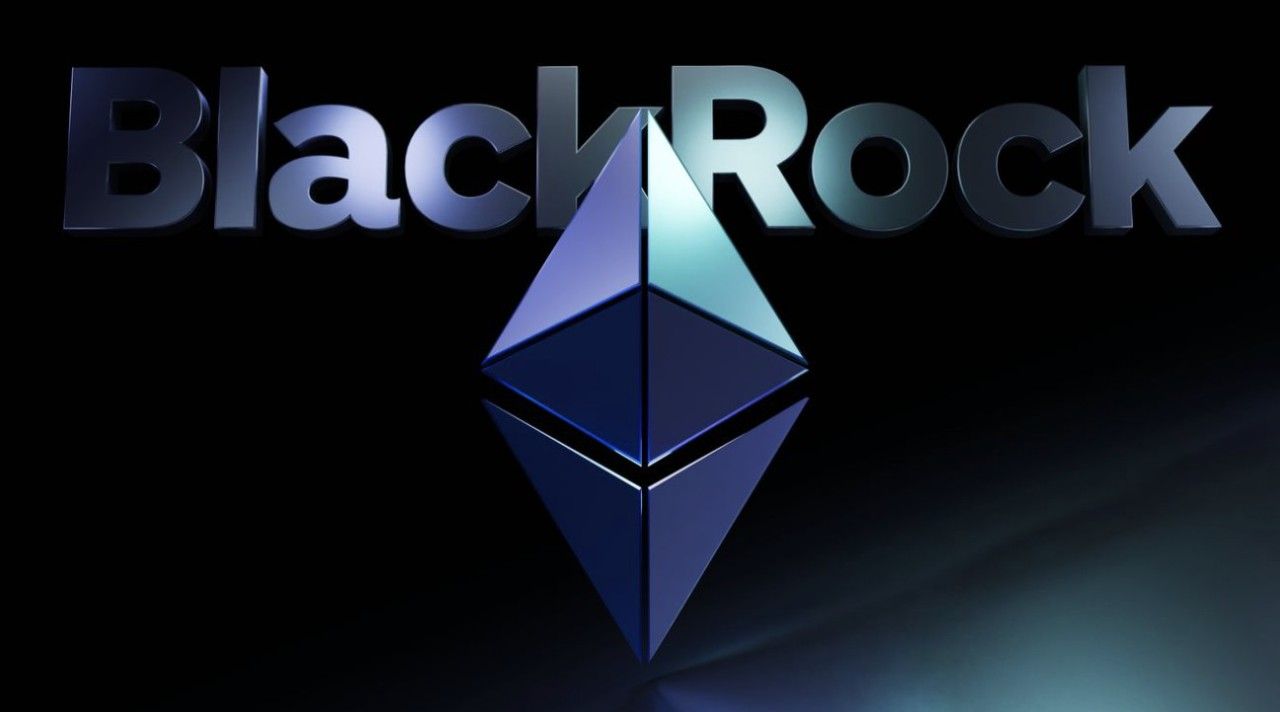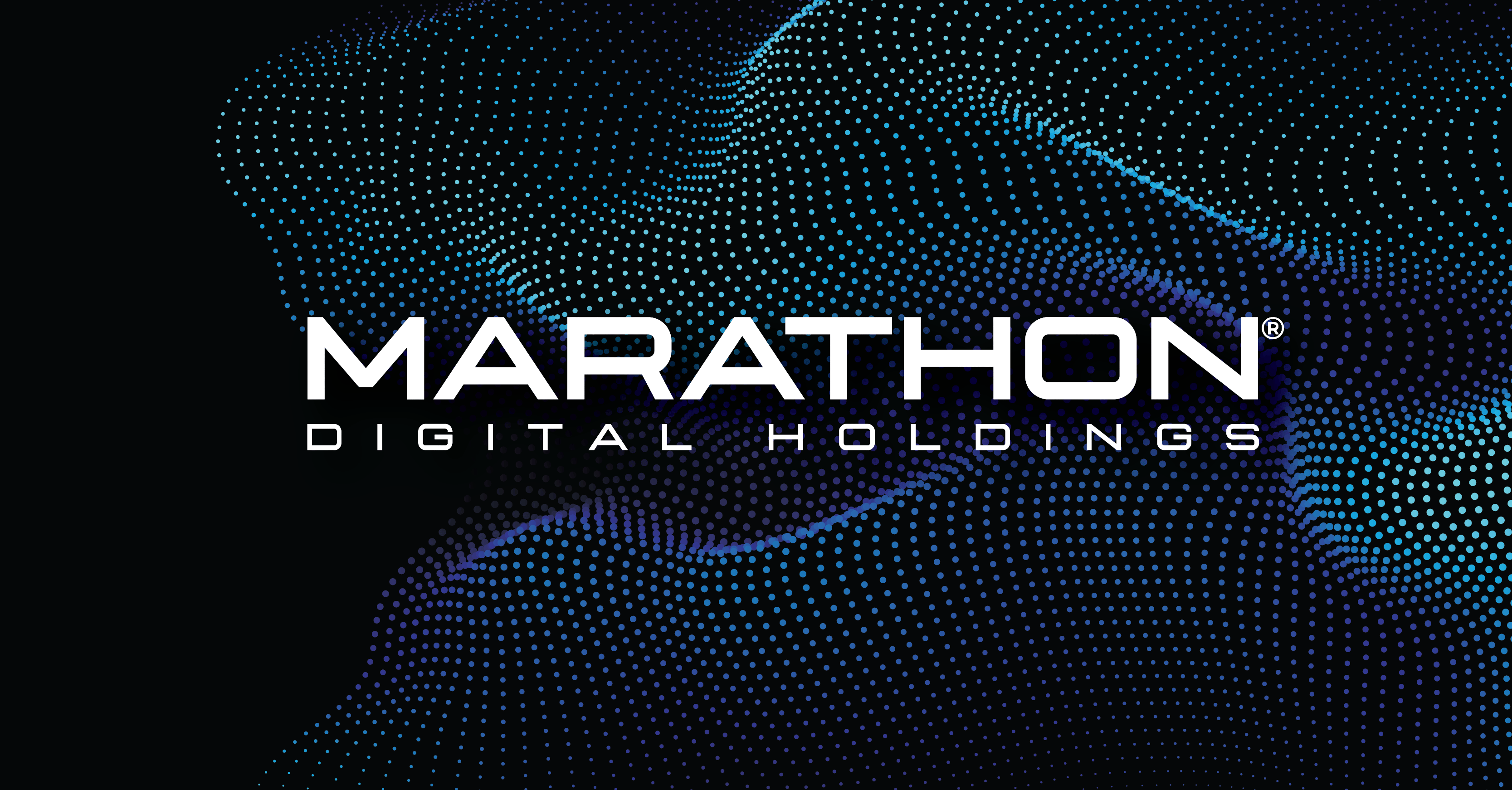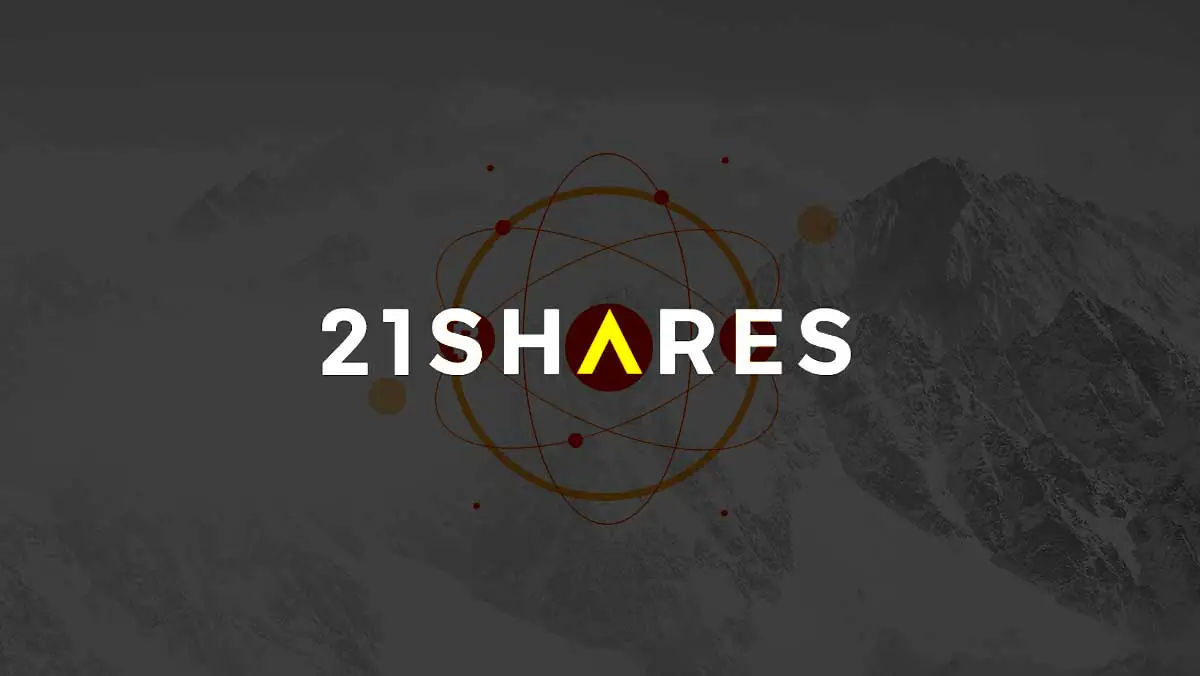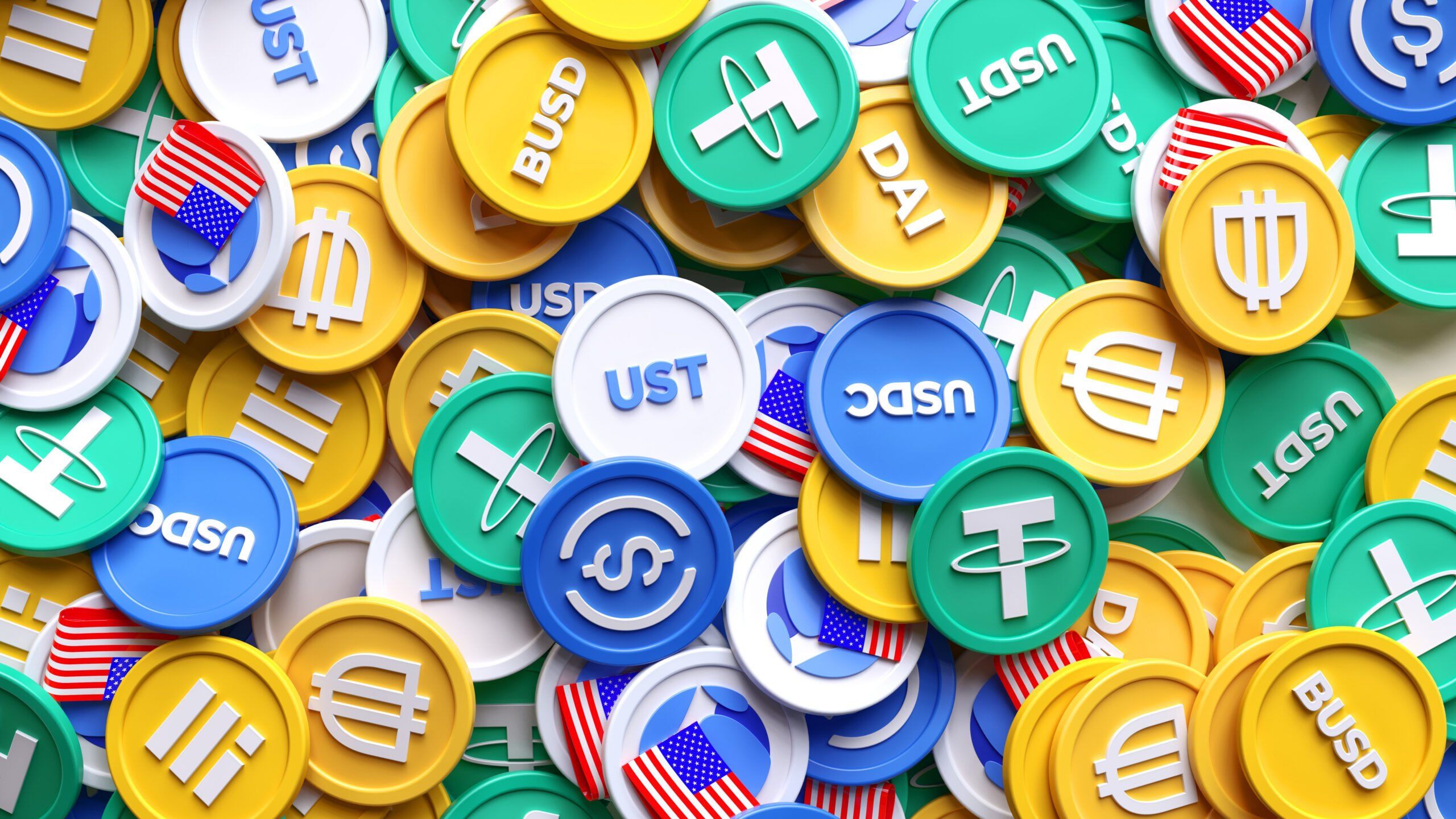Blog

BlackRock Doubles Ethereum Holdings With $3.76 Billion July Purchase
Jul-25-2025
BlackRock Inc., the world's largest asset manager with $10.6 trillion under management, purchased more than 1 million Ethereum tokens worth $3.76 billion during a three-week period in July, effectively doubling its cryptocurrency holdings in the second-largest digital asset by market value.
What to Know:
BlackRock acquired 1,035,653 ETH tokens between July 1-23, bringing total holdings to 2.8 million ETH valued at $10.22 billion
Spot Ethereum ETFs recorded $4.4 billion in inflows during July, exceeding the previous year's total accumulation
Ethereum's price surged 53.69% in July, reaching a multi-month high of $3,817 on July 21
Institutional Investment Surge Drives Market Activity
The New York-based investment giant's aggressive accumulation strategy reflects broader institutional appetite for Ethereum exposure. On-chain analytics firm Lookonchain tracked the purchases, which pushed BlackRock's total Ethereum position to 2.8 million tokens.
Spot Ethereum exchange-traded funds attracted $4.4 billion in July inflows alone.
This figure represents more capital than similar investment products accumulated throughout the entire previous year, according to industry data.
Market analysts characterize July as a period of institutional fear of missing out on Ethereum's price appreciation. The rush to establish positions intensified as the cryptocurrency's value climbed steadily throughout the month.
Price Performance Reflects Growing Demand
Ethereum traded above $3,500 for much of July, culminating in a multi-month peak of $3,817 on July 21. CoinMarketCap data shows the cryptocurrency gained 53.69% during the month, significantly outpacing traditional asset classes.
The price surge coincided with increased demand for Ethereum-based investment products.
Institutional investors previously underweight in cryptocurrency positions began rebalancing portfolios to include digital assets.
Network fundamentals also supported the bullish sentiment. Ethereum's decentralized finance ecosystem continued expanding, while anticipated network upgrades generated additional investor interest.
Strategic Implications for Digital Asset Market
BlackRock's accumulation strategy signals potential shifts in institutional capital allocation between Bitcoin and Ethereum. The firm's aggressive purchasing pattern suggests confidence in Ethereum's long-term prospects as an institutional asset class.
Competition between the two largest cryptocurrencies for institutional investment dollars has intensified throughout 2025. Bitcoin maintains its position as the dominant digital store of value, while Ethereum attracts investors focused on smart contract functionality and decentralized applications.
The investment giant's expanded Ethereum position could influence other institutional investors to reconsider their cryptocurrency allocations. Asset managers often follow BlackRock's lead given its market influence and research capabilities.
Market Outlook and Institutional Adoption
Ethereum's role in institutional portfolios continues evolving as traditional finance embraces digital assets. The cryptocurrency's utility beyond simple value storage appeals to investors seeking exposure to blockchain technology's commercial applications.
Decentralized finance protocols built on Ethereum processed hundreds of billions in transaction volume during 2025. This activity demonstrates real economic utility beyond speculative trading.
Industry observers expect continued institutional accumulation as regulatory clarity improves and cryptocurrency infrastructure matures. Exchange-traded funds provide traditional investors familiar investment vehicles for digital asset exposure.
Conclusion
BlackRock's $3.76 billion Ethereum purchase during July represents the largest institutional accumulation on record for the cryptocurrency. The investment giant's strategy reflects growing institutional confidence in Ethereum's long-term value proposition and utility within the broader digital asset ecosystem.
Read more

Mara Holdings Plans $1B Note Sale to Buy More Bitcoin
Jul-24-2025
The offering includes $850 million due in 2032 and a $150 million optional extension. The company intends to use the proceeds to repurchase existing debt, execute capped call transactions, buy more Bitcoin, and support general operations. This latest offering follows a $2 billion stock sale plan that was announced earlier this year and the recent acquisition of a minority stake in institutional advisor Two Prime. With 50,000 BTC, Mara is now the second-largest corporate holder of Bitcoin. Meanwhile, a growing number of more traditional companies from various industries are adding crypto to their treasuries, though analysts warn of high risks, especially for firms holding altcoins.
Mara Ramps Up Bitcoin Push
Mara Holdings, one of the largest publicly traded crypto mining companies, announced that it plans to offer up to $1 billion in convertible senior notes as the next step in its aggressive Bitcoin acquisition strategy. The offering includes $850 million in notes due in 2032, which will be available to qualified institutional buyers.
Additionally, these buyers will have the option to purchase an extra $150 million in principal, bringing the total potential raise to $1 billion. According to the company, a portion of the proceeds—up to $50 million—will be used to repurchase part of its outstanding 1.00% convertible senior notes due in 2026. The remainder of the capital is expected to fund capped call transactions, purchase more Bitcoin, and support general corporate initiatives.
The notes are senior unsecured obligations of Mara Holdings, and will not bear interest. However, the offer remains subject to prevailing market and other conditions. This means that there is no guarantee the deal will be completed or finalized under the current terms.
This debt offering is the latest in a series of strategic financial maneuvers by the company that are specifically aimed at scaling its Bitcoin reserves and mining operations. In late March, Mara disclosed plans to sell up to $2 billion in stock “from time to time” through agreements with institutional investors, with proceeds primarily used for expanding its Bitcoin holdings.
The announcement was also made after the company's recent acquisition of a minority stake in Two Prime, an institutional investment advisor managing $1.75 billion in assets. This deal effectively boosted the amount of Bitcoin managed on Mara’s behalf.
Additionally, Mara’s mining operations showed some remarkable growth. The company increased its Bitcoin production by 35% in May despite heightened mining difficulty and rising hashrates. Its annualized mining revenue recently surpassed $752 million, a new record.
Currently, Mara Holdings holds 50,000 BTC, making it the second-largest corporate Bitcoin holder after Strategy, which holds an industry-leading 607,000 BTC.
Crypto Treasuries Rise, But Risks Mount
A growing wave of more traditional companies are beginning to incorporate digital assets into their corporate treasury strategies. This is very likely due to the shift in how businesses perceive the role of cryptocurrencies in financial management.
This trend gained a lot of momentum, with firms across a wide range of industries—from agriculture to textiles—announcing crypto allocations this week alone. Among them, agricultural technology company Nature’s Miracle revealed that it will allocate up to $20 million to XRP. On the same day, consumer manufacturing firm Upexi disclosed it acquired 83,000 Solana (SOL) tokens, worth approximately $16.7 million, for its corporate reserve. A day earlier, Kitabo, a Japanese company that was founded nearly 80 years ago and known for its work in textiles and recycling, announced plans to purchase around $5.6 million in Bitcoin.
These moves are part of the broader trend driven by the growing appeal of digital assets as a hedge or diversification strategy in treasury portfolios. Bitcoin is often seen as the anchor asset in this trend, and still attracts attention from publicly listed companies.
However, analysts warn that while the allure of digital asset holdings is strong, it still comes with big risks. According to a report from venture capital firm Breed, only a small number of Bitcoin treasury companies are expected to survive long-term. The report warns that even minor declines in Bitcoin’s price could trigger a cascade of forced sales among overleveraged firms, which could lead to a feedback loop of declining prices and reduced access to corporate credit. This “death spiral” scenario is seen as a key systemic risk.
The situation is even more precarious for companies holding altcoins, which often experience extreme drawdowns of up to 90% between cycles and lack the long-term floor that Bitcoin tends to have. These firms could face not only market volatility but also potential investor lawsuits if digital assets underperform or if their traditional financial metrics, like share prices, deteriorate.
According to content creator Viktor, altcoins tend to collapse when market momentum fades, while Bitcoin has historically rebounded over time. This distinction may become increasingly important as more companies navigate the uncertain terrain of crypto-based treasury strategies.
Read more

21Shares Files for Spot ETF Tied to Ondo Finance’s Native Token
Jul-23-2025
21Shares has filed for a spot ETF that would directly hold ONDO.
Ondo is building out institutional-focused tokenization infrastructure.
Tokenized real-world assets are on the rise, with $25B now on-chain.
Exchange-traded fund provider 21Shares is pushing further into the tokenized finance sector, filing with U.S. regulators for a spot ETF that tracks the native token of Ondo Finance.
According to a preliminary prospectus submitted to the Securities and Exchange Commission on Tuesday, the proposed “21Shares Ondo Trust” will hold ONDO tokens directly and follow the CME CF Ondo Finance-Dollar Reference Rate.
Coinbase will act as custodian of the tokens. The fund is designed to be a passive investment vehicle, with no leverage or active speculation. Shares can be created or redeemed in cash or in-kind.
ONDO Powers Layer-1 Blockchain Built for Institutional Finance and RWAs
ONDO is the utility token powering Ondo Chain, a layer-1 proof-of-stake blockchain purpose-built for institutional finance and tokenized real-world assets (RWAs).
With a current market cap of $3.5 billion and a circulating supply of 3.1 billion tokens, ONDO is priced at $1.12, down 48% from its December peak of $2.14, per CoinGecko.
Among the token’s notable backers is World Liberty Financial, the Trump-affiliated DeFi platform.
The group purchased $250,000 worth of ONDO in December and currently holds 342,000 tokens, valued at around $383,000, per Nansen data.
Still, ONDO accounts for just 0.2% of the platform’s $208 million portfolio, which leans heavily on stablecoins, wrapped Ether, and Bitcoin.
21Shares’ ETF filing follows a busy month for Ondo Finance. Earlier in July, the protocol acquired SEC-registered broker-dealer Oasis Pro to advance its tokenized securities strategy.
The move, made in collaboration with Pantera Capital, is seen as a bid to bridge traditional finance with blockchain infrastructure.
Oasis Pro, which operates as an Alternative Trading System and SEC-registered transfer agent, has been a FINRA member since 2020.
Ondo’s broader vision was laid out in February with the launch of Ondo Chain, its dedicated blockchain designed to cater to Wall Street firms and institutional-grade tokenization.
The filing comes amid a surge in tokenized real-world asset activity. On-chain RWA value has jumped 58% this year to nearly $25 billion, according to RWA.xyz.
Ethereum currently dominates the space, with 55% of RWA tokenization activity, largely in private credit and U.S. Treasurys.
95% Approval Chance for Spot Solana, XRP ETFS
As reported, Bloomberg’s senior ETF analysts have assigned a 95% chance that the SEC will approve spot ETFs for Solana, XRP, and Litecoin this year, raising their previous odds from 90% amid growing optimism for institutional crypto products.
They also expect a crypto index ETF tracking multiple assets could gain approval as early as this week, signaling broader access to altcoins for traditional investors.
Beyond ETFs, institutional Bitcoin demand is spreading into corporate treasuries.
As reported, Singapore-headquartered edtech firm Genius Group has doubled its Bitcoin holdings to 200 BTC after acquiring 20 BTC last week, part of a wider strategy to build a 10,000-BTC treasury.
Public companies are increasingly adding altcoins like Ether (ETH), Solana’s SOL, and XRP to their treasury strategies, according to a report from Animoca Brands Research.
Michael Saylor’s Strategy popularized this model by holding over 600,000 Bitcoins as a hedge against inflation and currency devaluation.
Read more

JPMorgan to Offer Bitcoin-Ethereum Collateralized Loans
Jul-22-2025
Main action on crypto-backed loans; potential market innovation.
Positive shift for Bitcoin and Ethereum.
Significant institutional crypto development.
JPMorgan Chase, led by CEO Jamie Dimon, announces plans to offer loans backed by Bitcoin and Ethereum holdings as early as 2026, pending regulatory approval.
JPMorgan's initiative signifies a potential shift in the integration of cryptocurrency with traditional finance, leveraging Bitcoin and Ethereum for secured lending. This development marks a new phase in institutional crypto assets adoption.
Institutional Crypto Asset Adoption
JPMorgan Chase is preparing to extend loans against Bitcoin and Ethereum as collateral. The initiative reflects Dimon’s evolving stance on digital currencies, moving from skepticism to measured acceptance. Dimon's shift coincides with a broader industry trend toward crypto adoption.
JPMorgan's initiative to allow clients to use Bitcoin and Ethereum as collateral reflects a significant shift from the early anti-crypto stance taken by the institution. According to Jamie Dimon, "Stablecoins are real" and "JPMorgan will be involved both in deposit tokens and stablecoins."
Stablecoins and collateralized lending mechanisms mirror models in decentralized finance, involving assets like Aave and MakerDAO. However, JPMorgan’s institutional approach offers greater credibility and potential market stability. The plan, though pending, could significantly alter the dynamics of crypto and traditional finance.
Market Implications
Immediate market effects are yet to manifest, as the product awaits approval, but the strategic move indicates a bullish outlook for BTC and ETH. Wealthy clients and institutional investors will likely be primary beneficiaries, paralleling existing securities-backed models.
JPMorgan’s crypto-backed loans hinge on regulatory clearance, showcasing ongoing dialogues with U.S. financial authorities. Market analysts predict the scheme could unlock further financial integration, fostering increased liquidity without necessitating crypto asset sales.
An anticipated total value of $4.3 trillion could be enabled for crypto-backed lending by JPMorgan, influencing not just JPMorgan’s business strategy but also the overarching financial ecosystem.
Read more

SWIFT and USD Stablecoins Enhance Global Blockchain Payments
Jul-21-2025
SWIFT's blockchain integration reshaping global financial systems.
USD stablecoins integrate under regulatory clarity.
XRP, HBAR seeing institutional collaboration.
SWIFT is at the forefront of incorporating blockchain into global financial infrastructures. By November 2025, tokenized assets and smart contracts will be integrated into SWIFT's payment systems. The initiative aligns with USD stablecoins being regulated, illustrating a significant pivot toward blockchain technology.
Key firms like XRP and Hedera, due to their enterprise compliance focus and strategic positions, are integral to this shift. Partnerships with financial institutions underline this change, aligning with regulatory frameworks sought by agencies like the CFTC and FinCEN.
The effects extend to various markets, where asset movements and liquidity on blockchains are expected to rise. XRP and HBAR could see growth in transaction volumes, aligning with compliant business models. USD stablecoins also show increased market cap and transaction volumes, demonstrating high utilization. Nikhil Chandhok, Chief Product & Technology Officer, Circle, emphasized, "We’re solving for cash on the internet," reinforcing the thesis that the US dollar is moving onchain.
The initiative potentially brings pivotal financial and regulatory outcomes. Historical blockchain trials, like SWIFT's previous pilots, suggest shifts towards compliant industry upgrades. Such moves might expand governance tokens and Layer 1 asset markets, driven by institutional flows.
These insights reflect a larger trend towards blockchain and digital asset utilization. With growing institutional acceptance and compliance focus, the broader financial ecosystem could see significant transformations.
Read more






